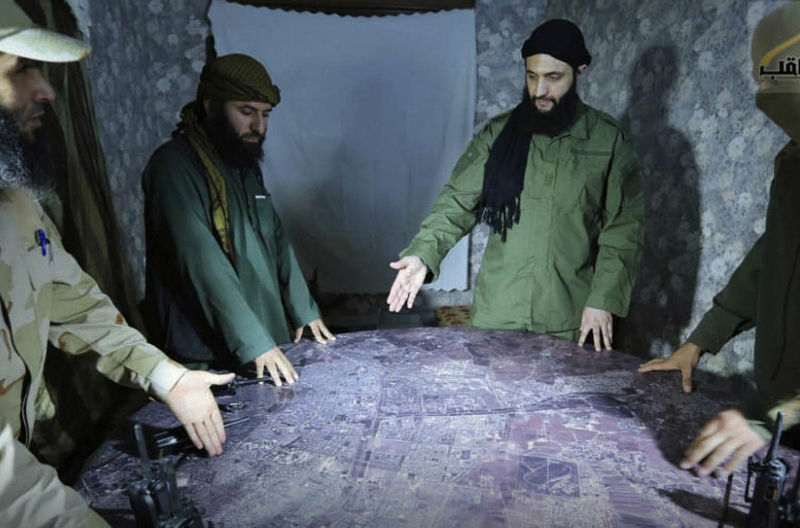Ahmad al-Sharaa (second from right), then known by his nom de guerre Abu Mohammad al-Julani, discussing battlefield details with field commanders over a map in Aleppo, Syria, in an undated photo released in 2016. Photo: AP
A June 22 suicide bombing at a Greek Orthodox church in Damascus marked the largest attack on Christians in Syria since 1860 — and posed one of the greatest challenges yet for the country’s new leadership. The overthrow of Bashar al-Assad six months ago raised hopes for peaceful coexistence among Syria’s ethno-religious groups. Now, none feel safe. The Kurds and Druze are demanding autonomy, Christians fear fresh attacks and Islamist-driven policies, and Alawites have not forgotten the mass reprisals of March. Meanwhile, the Islamists oppose President Ahmad al‑Sharaa, who is struggling to balance the competing demands of Syria’s diverse communities. The Insider spoke with Syrians to understand their views on the situation and whether national reconciliation is possible.
Syria is emerging from nearly fifteen years of international isolation. Back in May, when the United States and European Union announced that they were lifting most of their economic sanctions on the country, mass celebrations and spontaneous rallies took place in all major Syrian cities.
“There’s euphoria again,” Mohammed, a student in Damascus, told The Insider. Using the Arabic word for “liberation,” he added that, “it’s just like in the first days after the tahrir” — a reference to Dec. 8, 2024, when former dictator Bashar al-Assad fled the country and his army capitulated to opposition forces.
The SDF (Syrian Democratic Forces) is a Kurdish-led international military alliance in Syria that controls the Autonomous Administration of Rojava. It was established in 2015 with support from the U.S.-led international coalition in Syria. The core of the SDF consists of Kurdish self-defense units, the YPG and YPJ.
The PKK is a Kurdish political and military organization that has been fighting for Kurdish national rights in Turkey and the creation of a territorial autonomy within the country. Since 1984, it has waged an armed insurgency against the Turkish authorities. It is designated as a terrorist organization in Turkey.
In the mid-19th century, European economic and political intervention in the Middle East led to a marked rise in wealth and social status among Syrian Christians, whom Paris and London preferred to deal with directly, bypassing Ottoman officials and local Muslims. The resulting resentment among Damascus’s Muslim population — left without stable income due to European dealings — combined with the central government’s inability to quickly restore order on the empire’s periphery, triggered several days of pogroms that left at least 2,500 people dead.
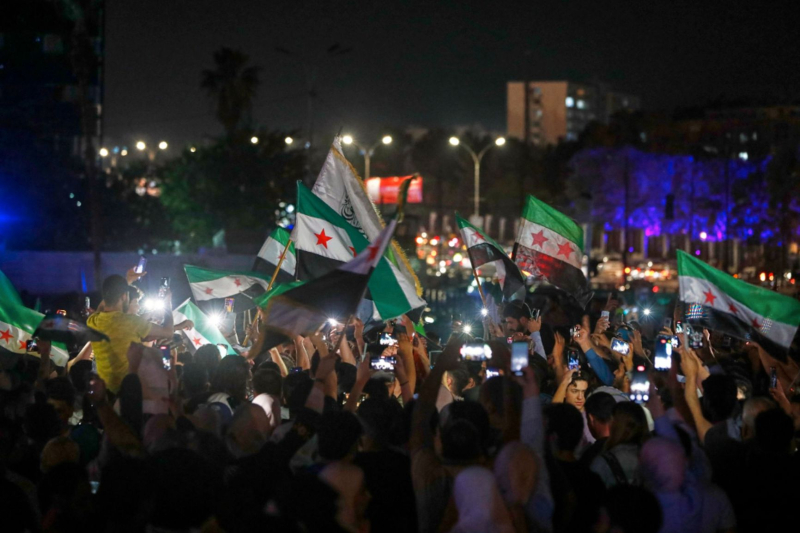
In a May 27 speech in Aleppo, Syria’s new president Ahmad al-Sharaa outlined what he sees as the country’s primary challenge: “The war against tyrants is over; now begins the fight against poverty.” The current government has stated that economic recovery is its top priority — a message repeated more often than messages about minority rights or national unity.
It has had a material effect. Syrian banks have received codes to reconnect to the SWIFT system, and on June 3, the Damascus Securities Exchange (DSE) resumed operations after a six-month closure in the run-up to the ouster of Assad. “We are open to investment, no restrictions, no obstacles. Anyone wishing to invest in Syria is welcome,” Finance Minister Mohammad Yusr Barnieh declared at the DSE's re-opening. However, according to The Insider’s sources in Idlib province, investors remain cautious. As one Syrian businessman — formerly an opposition fighter — explained the situation:
The SDF (Syrian Democratic Forces) is a Kurdish-led international military alliance in Syria that controls the Autonomous Administration of Rojava. It was established in 2015 with support from the U.S.-led international coalition in Syria. The core of the SDF consists of Kurdish self-defense units, the YPG and YPJ.
The PKK is a Kurdish political and military organization that has been fighting for Kurdish national rights in Turkey and the creation of a territorial autonomy within the country. Since 1984, it has waged an armed insurgency against the Turkish authorities. It is designated as a terrorist organization in Turkey.
In the mid-19th century, European economic and political intervention in the Middle East led to a marked rise in wealth and social status among Syrian Christians, whom Paris and London preferred to deal with directly, bypassing Ottoman officials and local Muslims. The resulting resentment among Damascus’s Muslim population — left without stable income due to European dealings — combined with the central government’s inability to quickly restore order on the empire’s periphery, triggered several days of pogroms that left at least 2,500 people dead.
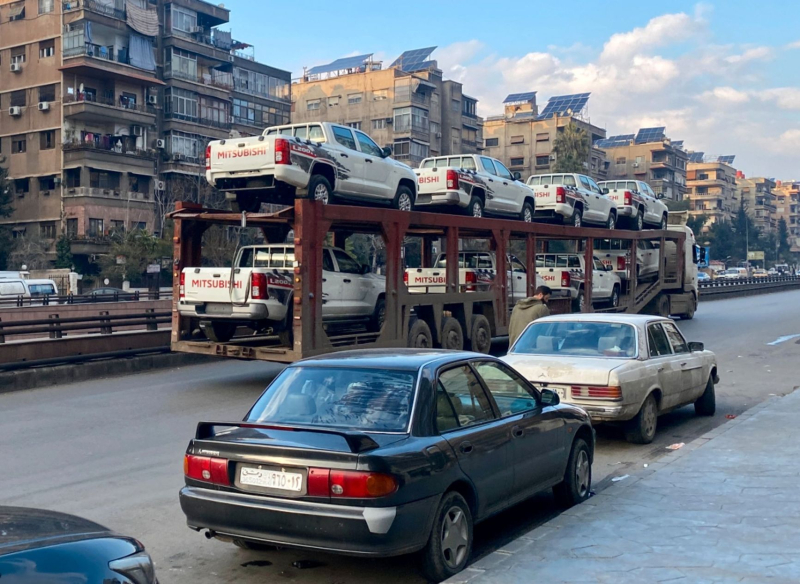
“We’ve been tasked with negotiating with entrepreneurs who left after the tahrir, to help rebuild the country. We’re inviting them back and guaranteeing their safety. But the return isn’t as active as we’d hoped. We’re speaking to them no longer as rebels, but as part of the state. No one will touch them, that’s guaranteed at the highest levels. We’ve held talks with the state security services, intelligence, and police.”
Concerns over security are one of the main reasons for the reluctance to return. Many Syrians told The Insider that the government is unable to ensure their safety. Majed Khelobi, a journalist from the Kurdish city of Tel Aran in Aleppo province, survived an attack on his home in May. Despite the fact that unidentified gunmen opened fire of the facade of his building, the police have yet to respond to his report, and no criminal investigation has been launched.
The SDF (Syrian Democratic Forces) is a Kurdish-led international military alliance in Syria that controls the Autonomous Administration of Rojava. It was established in 2015 with support from the U.S.-led international coalition in Syria. The core of the SDF consists of Kurdish self-defense units, the YPG and YPJ.
The PKK is a Kurdish political and military organization that has been fighting for Kurdish national rights in Turkey and the creation of a territorial autonomy within the country. Since 1984, it has waged an armed insurgency against the Turkish authorities. It is designated as a terrorist organization in Turkey.
In the mid-19th century, European economic and political intervention in the Middle East led to a marked rise in wealth and social status among Syrian Christians, whom Paris and London preferred to deal with directly, bypassing Ottoman officials and local Muslims. The resulting resentment among Damascus’s Muslim population — left without stable income due to European dealings — combined with the central government’s inability to quickly restore order on the empire’s periphery, triggered several days of pogroms that left at least 2,500 people dead.
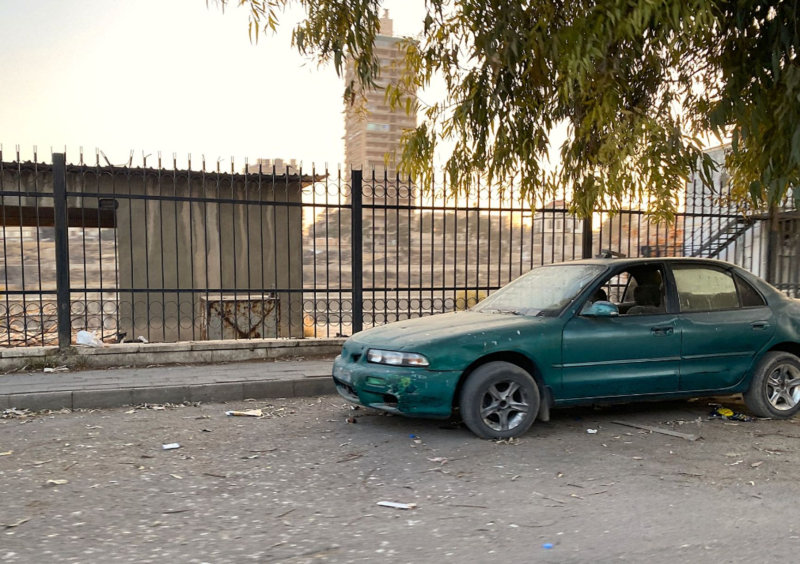
“This attack was neither random nor isolated. It is the result of law enforcement's negligence and inability to take action against offenders who continue to openly and with impunity intimidate citizens,” Khelobi said.
Security in Damascus is better than in the suburbs or other regions, but shootings still occur. In late April, the Layila al-Sharq nightclub in the center of the capital was the target of an armed assault that saw around twenty masked assailants storm in and beat patrons with rifle butts. Authorities reported that the attackers were members of the Syrian security forces. In early May, the Al Karawan club suffered a similar attack. Patrons were beaten, a dancer was killed, and two others were injured.
The peak of the violence came with the June 22 attack on the Greek Orthodox Church of Mar Elias, also in Damascus. A suicide bomber entered the church, opened fire on worshippers, threw a grenade, and then detonated himself. At least 20 people were killed and 63 wounded. The assault was the most deadly attack on a Christian church in Syria since the massacres of 1860. No group claimed responsibility. Authorities blamed the Islamic State, but residents criticized President al-Sharaa for referring to the incident as a “crime” rather than calling it a “terrorist attack.”
The SDF (Syrian Democratic Forces) is a Kurdish-led international military alliance in Syria that controls the Autonomous Administration of Rojava. It was established in 2015 with support from the U.S.-led international coalition in Syria. The core of the SDF consists of Kurdish self-defense units, the YPG and YPJ.
The PKK is a Kurdish political and military organization that has been fighting for Kurdish national rights in Turkey and the creation of a territorial autonomy within the country. Since 1984, it has waged an armed insurgency against the Turkish authorities. It is designated as a terrorist organization in Turkey.
In the mid-19th century, European economic and political intervention in the Middle East led to a marked rise in wealth and social status among Syrian Christians, whom Paris and London preferred to deal with directly, bypassing Ottoman officials and local Muslims. The resulting resentment among Damascus’s Muslim population — left without stable income due to European dealings — combined with the central government’s inability to quickly restore order on the empire’s periphery, triggered several days of pogroms that left at least 2,500 people dead.
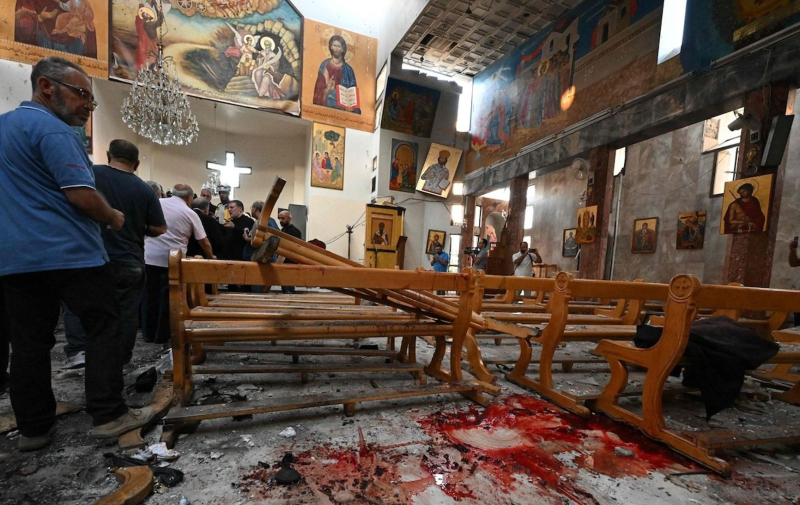
Following Assad’s ouster, control of Damascus and much of the country shifted to military structures dominated by Sunni Muslims. Representatives of national and religious minorities — roughly 20% of the population — along with many secular citizens, have criticized the new government for lacking inclusiveness, and Syrians are increasingly afraid of rising sectarian violence. Tensions between groups continue to escalate amid communal-religious clashes in the provinces of Latakia, Homs, and Tartus, as well as in Druze-populated areas
“People gather in the streets and chant ISIS slogans against Alawites. I hear that crap at least twice a day,” says Mohammad, the student from Damascus. The Alawites were long regarded as the backbone of the Assad regime. After the tahrir, they feared collective and indiscriminate retribution from the Sunni majority — and that's exactly what happened.
The SDF (Syrian Democratic Forces) is a Kurdish-led international military alliance in Syria that controls the Autonomous Administration of Rojava. It was established in 2015 with support from the U.S.-led international coalition in Syria. The core of the SDF consists of Kurdish self-defense units, the YPG and YPJ.
The PKK is a Kurdish political and military organization that has been fighting for Kurdish national rights in Turkey and the creation of a territorial autonomy within the country. Since 1984, it has waged an armed insurgency against the Turkish authorities. It is designated as a terrorist organization in Turkey.
In the mid-19th century, European economic and political intervention in the Middle East led to a marked rise in wealth and social status among Syrian Christians, whom Paris and London preferred to deal with directly, bypassing Ottoman officials and local Muslims. The resulting resentment among Damascus’s Muslim population — left without stable income due to European dealings — combined with the central government’s inability to quickly restore order on the empire’s periphery, triggered several days of pogroms that left at least 2,500 people dead.
“People gather in the streets and chant ISIS slogans against Alawites. I hear that crap at least twice a day.”
On the night of March 8, clashes broke out in Latakia and Tartus between the new authorities and armed pro-Assad groups. According to the official account, Assad loyalists who had refused to surrender their weapons attacked security forces and killed 13 people. In response, the military launched an operation against “remnants of the regime.” It turned into a wave of retaliatory killings that flooded social media with videos showing the brutal execution of civilians in Latakia, Tartus, and Homs.
The SDF (Syrian Democratic Forces) is a Kurdish-led international military alliance in Syria that controls the Autonomous Administration of Rojava. It was established in 2015 with support from the U.S.-led international coalition in Syria. The core of the SDF consists of Kurdish self-defense units, the YPG and YPJ.
The PKK is a Kurdish political and military organization that has been fighting for Kurdish national rights in Turkey and the creation of a territorial autonomy within the country. Since 1984, it has waged an armed insurgency against the Turkish authorities. It is designated as a terrorist organization in Turkey.
In the mid-19th century, European economic and political intervention in the Middle East led to a marked rise in wealth and social status among Syrian Christians, whom Paris and London preferred to deal with directly, bypassing Ottoman officials and local Muslims. The resulting resentment among Damascus’s Muslim population — left without stable income due to European dealings — combined with the central government’s inability to quickly restore order on the empire’s periphery, triggered several days of pogroms that left at least 2,500 people dead.
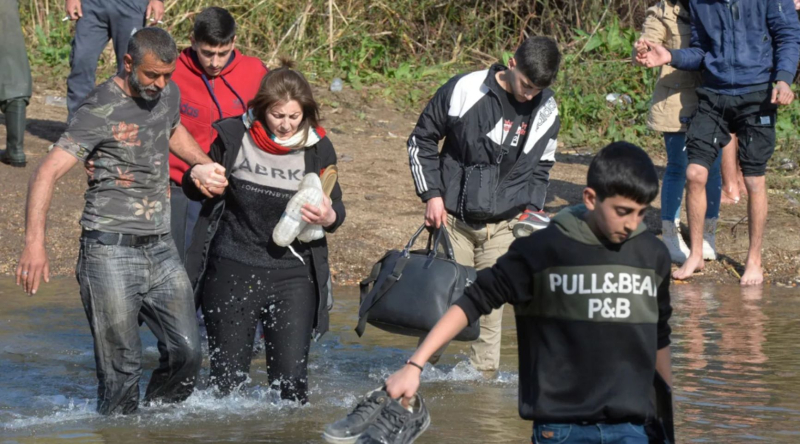
“That wasn’t Syria — it was an Afghan nightmare. People scattered in every direction — into forests, valleys, toward the sea,” recalls Zuhair, a journalist from Latakia. For over a week, Zuhair and his family did not leave their home. Gunfire erupted in the streets daily.
From the early days of the Latakia conflict, al-Sharaa’s government promised an official investigation and arrested several suspects in the killings of civilians. But according to Aron Lund, an analyst with the Swedish Defence Research Agency (FOI), these actions were driven more by the desire to maintain ties with the West than by a commitment to principles of justice. “To me, it looks more like damage control than a matter of strict principles,” said Lund. Still, he noted, it is significant that the new authorities are at least attempting to hold perpetrators accountable:
“Al-Sharaa has, at the very least, surpassed his predecessor Assad in this regard. It’s a low bar, but it’s something.”
Another Middle East expert, the Lebanon-based Sam Heller, spoke to the likely consequences of the violence: “What happened on the coast seems likely to leave permanent scars on all minority communities. These people may never feel safe again.”
The peak of anti-Alawite reprisals came in March. But according to locals, tensions remain high, especially outside the capital. Radical elements who joined the new regime’s security forces have reportedly been detaining Alawites — forcing them to bark like dogs, beating them, and in some cases killing them. Videos of these abuses are often posted by the perpetrators themselves.
“I panic every time I approach a checkpoint leaving Damascus. I fear I’ll be detained or killed just because I’m Alawite. And I’ve always been against Assad,” says Mohammad.
The SDF (Syrian Democratic Forces) is a Kurdish-led international military alliance in Syria that controls the Autonomous Administration of Rojava. It was established in 2015 with support from the U.S.-led international coalition in Syria. The core of the SDF consists of Kurdish self-defense units, the YPG and YPJ.
The PKK is a Kurdish political and military organization that has been fighting for Kurdish national rights in Turkey and the creation of a territorial autonomy within the country. Since 1984, it has waged an armed insurgency against the Turkish authorities. It is designated as a terrorist organization in Turkey.
In the mid-19th century, European economic and political intervention in the Middle East led to a marked rise in wealth and social status among Syrian Christians, whom Paris and London preferred to deal with directly, bypassing Ottoman officials and local Muslims. The resulting resentment among Damascus’s Muslim population — left without stable income due to European dealings — combined with the central government’s inability to quickly restore order on the empire’s periphery, triggered several days of pogroms that left at least 2,500 people dead.
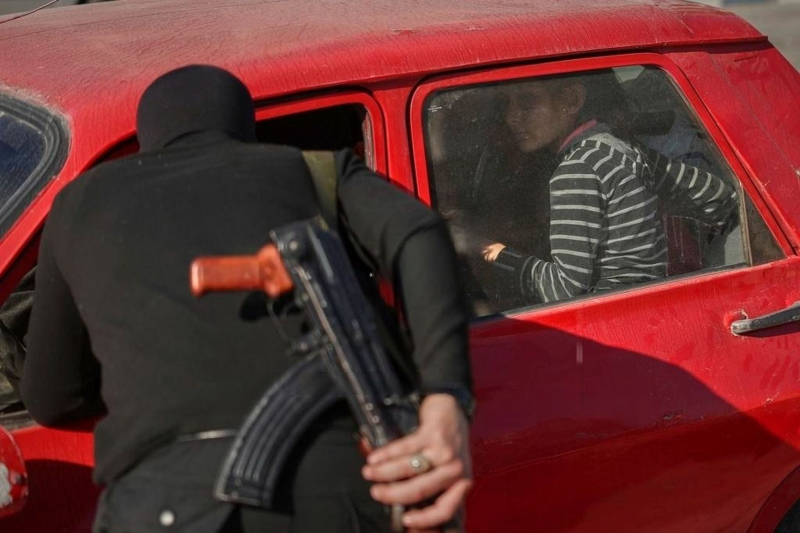
Following the events in Latakia, security across Syria has deteriorated rapidly. Reports of kidnappings — primarily of Alawites — have spread online. In some cases, ransoms were demanded. While such incidents occurred in the past, the present volume is unprecedented.
“Killing or abducting Alawites has become a trend here. No one is doing anything about it. Especially in Homs and Latakia,” says Mohammad. According to the Syrian Observatory for Human Rights, 17 people — including three women and a child — were kidnapped between May 22 and June 2. On June 5, a local UN employee was abducted in Tartus. There is no confirmed information about who is behind these abductions.
The SDF (Syrian Democratic Forces) is a Kurdish-led international military alliance in Syria that controls the Autonomous Administration of Rojava. It was established in 2015 with support from the U.S.-led international coalition in Syria. The core of the SDF consists of Kurdish self-defense units, the YPG and YPJ.
The PKK is a Kurdish political and military organization that has been fighting for Kurdish national rights in Turkey and the creation of a territorial autonomy within the country. Since 1984, it has waged an armed insurgency against the Turkish authorities. It is designated as a terrorist organization in Turkey.
In the mid-19th century, European economic and political intervention in the Middle East led to a marked rise in wealth and social status among Syrian Christians, whom Paris and London preferred to deal with directly, bypassing Ottoman officials and local Muslims. The resulting resentment among Damascus’s Muslim population — left without stable income due to European dealings — combined with the central government’s inability to quickly restore order on the empire’s periphery, triggered several days of pogroms that left at least 2,500 people dead.
Seventeen people — including three women and a child — were kidnapped in Syria between May 22 and June 2 alone
There have also been reports of property seizures. One such account comes from local resident Rim Raslan Shatta: “My home in Damascus was occupied by a foreign commander who claimed it had previously been rented by a Syrian from the coast” — a reference to Syria’s coastal provinces, where many Alawites live.
Shatta contacted a local security officer to intervene, but he refused. “Then I went to the Damascus provincial administration and filed an official complaint,” she explained, “submitting documents proving my ownership. I want to reclaim my home legally. But unfortunately, nothing has been done.”
Since the events in Latakia, the issue of collective responsibility has become one of the most hotly debated topics among Syrians on social media. “I feel sorry for the innocents, but we all know that the Alawites were the ones who dropped barrel bombs and chemical weapons and shot protesters. Their areas must be guarded 24/7. It's a national security matter,” read one typical post. Others argue back: “By your logic, then the Sunnis are responsible for ISIS, and the Christians for the Nazis.”
Kassam, a Syrian activist, says the country is in desperate need of justice, but he has no faith that the al-Sharaa regime can provide it. “We need to see those responsible for Syria’s bloodshed brought to justice. But that’s not going to happen. Because if it did, Julani [the nom de guerre used by Ahmad al-Sharaa when he was commander of HTS] and his inner circle would be on trial right alongside Bashar al-Assad.”
In May, tension flared in Druze-populated areas. The Druze are an Arab ethno-religious minority that makes up around 3% of Syria’s population. They mostly live in the south of the country, in the suburbs of Damascus, and in the As-Suwayda province near the Israeli border. During the civil war, the Druze maintained neutrality and, in some cases, formed their own armed units to defend their communities.
Clashes between the Druze and Syrian military forces began in late April in the town of Ashrafiyet Sahnaya, southwest of Damascus.
The SDF (Syrian Democratic Forces) is a Kurdish-led international military alliance in Syria that controls the Autonomous Administration of Rojava. It was established in 2015 with support from the U.S.-led international coalition in Syria. The core of the SDF consists of Kurdish self-defense units, the YPG and YPJ.
The PKK is a Kurdish political and military organization that has been fighting for Kurdish national rights in Turkey and the creation of a territorial autonomy within the country. Since 1984, it has waged an armed insurgency against the Turkish authorities. It is designated as a terrorist organization in Turkey.
In the mid-19th century, European economic and political intervention in the Middle East led to a marked rise in wealth and social status among Syrian Christians, whom Paris and London preferred to deal with directly, bypassing Ottoman officials and local Muslims. The resulting resentment among Damascus’s Muslim population — left without stable income due to European dealings — combined with the central government’s inability to quickly restore order on the empire’s periphery, triggered several days of pogroms that left at least 2,500 people dead.
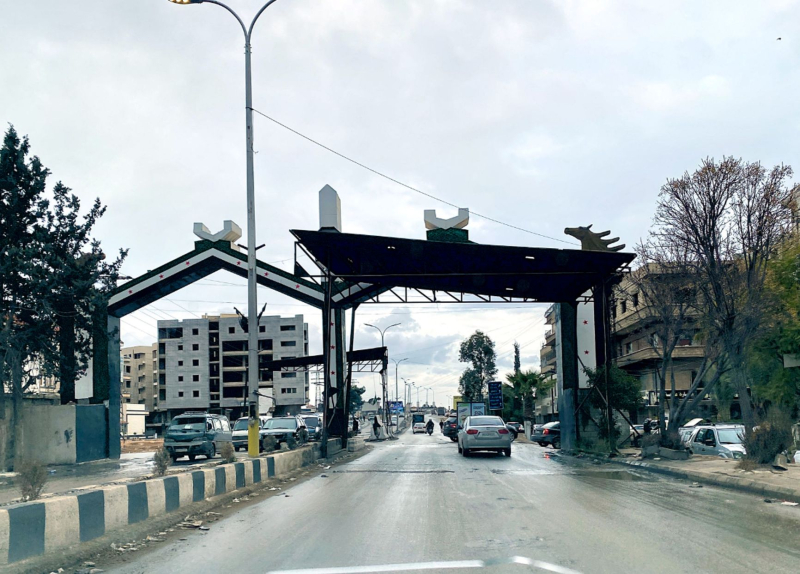
“An audio recording surfaced, allegedly featuring a Druze leader insulting the Prophet Muhammad. Protests broke out across towns. The military showed up at checkpoints and opened fire on patrol officers. It started at 3 a.m. and calmed down by morning, but by evening they opened fire again — without pause,” a resident of Sahnaya told The Insider. “Later it turned out that the recording was a fabrication, allegedly made by a Syrian currently abroad who had worked with the Assad regime.”
Security forces of the new regime also arrived to “restore order” in other Druze towns — neighboring Jaramana and As-Suwayda, 70 kilometers from Damascus. The clashes ultimately left more than 100 dead — around 70 Druze, with the remaining casualties coming from among security personnel and regime loyalist fighters.
The Druze follow a unique religion that originally branched off from Ismailism (a sect of Shiite Islam). “We Druze had nothing to do with that audio recording. The Prophet Muhammad is our prophet too. We would never insult him,” said Khaled, a teacher from Jaramana. However, their beliefs differ significantly from mainstream Islam, which has led Sunni radicals to label the Druze — like the Alawites — as apostates.
The SDF (Syrian Democratic Forces) is a Kurdish-led international military alliance in Syria that controls the Autonomous Administration of Rojava. It was established in 2015 with support from the U.S.-led international coalition in Syria. The core of the SDF consists of Kurdish self-defense units, the YPG and YPJ.
The PKK is a Kurdish political and military organization that has been fighting for Kurdish national rights in Turkey and the creation of a territorial autonomy within the country. Since 1984, it has waged an armed insurgency against the Turkish authorities. It is designated as a terrorist organization in Turkey.
In the mid-19th century, European economic and political intervention in the Middle East led to a marked rise in wealth and social status among Syrian Christians, whom Paris and London preferred to deal with directly, bypassing Ottoman officials and local Muslims. The resulting resentment among Damascus’s Muslim population — left without stable income due to European dealings — combined with the central government’s inability to quickly restore order on the empire’s periphery, triggered several days of pogroms that left at least 2,500 people dead.
Sunni radicals view the Druze — and the Alawites — as apostates.
“Relations with the Druze are complicated. They initially refused to disarm and don’t really recognize the current authorities. They have close ties with Israel and the previous regime — or at least, that’s what people say around here,” a Sahnaya resident explained.
The SDF (Syrian Democratic Forces) is a Kurdish-led international military alliance in Syria that controls the Autonomous Administration of Rojava. It was established in 2015 with support from the U.S.-led international coalition in Syria. The core of the SDF consists of Kurdish self-defense units, the YPG and YPJ.
The PKK is a Kurdish political and military organization that has been fighting for Kurdish national rights in Turkey and the creation of a territorial autonomy within the country. Since 1984, it has waged an armed insurgency against the Turkish authorities. It is designated as a terrorist organization in Turkey.
In the mid-19th century, European economic and political intervention in the Middle East led to a marked rise in wealth and social status among Syrian Christians, whom Paris and London preferred to deal with directly, bypassing Ottoman officials and local Muslims. The resulting resentment among Damascus’s Muslim population — left without stable income due to European dealings — combined with the central government’s inability to quickly restore order on the empire’s periphery, triggered several days of pogroms that left at least 2,500 people dead.
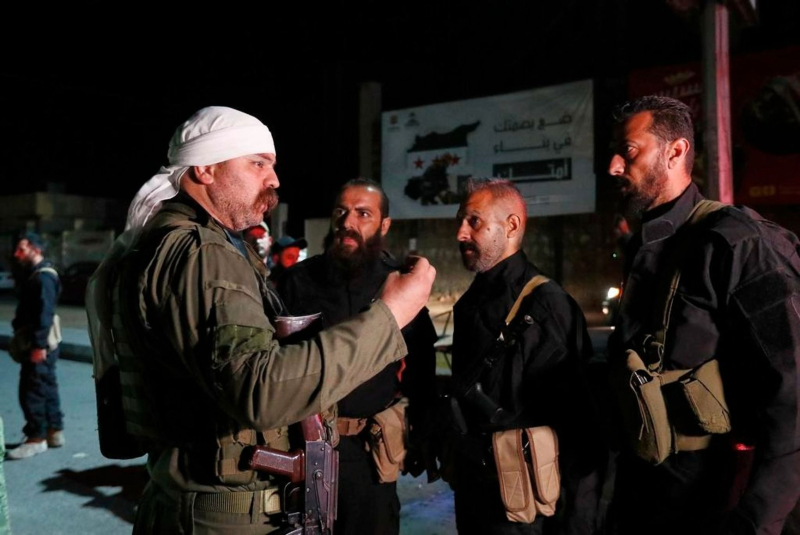
The Druze were given ten days to join the national security forces. “They say around 900 of our people have already signed up. That’s good — both for us and for the state,” Khaled believes.
Achieving national reconciliation is possible, but the new government must prove through actions — not words — that it can ensure safety, Khaled told The Insider. The main issue, he explained, is the deep distrust locals feel toward Damascus:
“We need real guarantees. Without them, nothing will work.”
“The new government must understand that relations with As-Suwayda, Jaramana, and Sahnaya must be built differently than with other regions of Syria. An agreement must be reached that satisfies all sides and guarantees that Syrian Druze will not face attacks in their own towns. The authorities seem to understand that Syria is home not only to Sunnis, but also to Christians, Druze, Alawites, and other faiths — and that Syria is their homeland too.”
Another major challenge for Syria’s new leadership is managing its relationship with the Kurdish community. Syrian Kurds are estimated to number between 2 and 3 million, or about 10–15% of the pre-war population. At the start of the civil war, they declared autonomy in the country’s north and northeast under the name Rojava — officially, the Autonomous Administration of North and East Syria (AANES).
The main stumbling block between the Kurdish administration and Syria’s new authorities is the question of governance. The Kurds demand decentralization and the preservation of their own institutions, while Damascus insists on a unitary state and has yet to make any concessions.
“They [the Kurdish administration] want to integrate into the new Syrian state without significant changes to the form of governance in the Autonomous Administration regions,” explained Aras Yussef, a researcher with the Kurdish Peace Institute.
The SDF (Syrian Democratic Forces) is a Kurdish-led international military alliance in Syria that controls the Autonomous Administration of Rojava. It was established in 2015 with support from the U.S.-led international coalition in Syria. The core of the SDF consists of Kurdish self-defense units, the YPG and YPJ.
The PKK is a Kurdish political and military organization that has been fighting for Kurdish national rights in Turkey and the creation of a territorial autonomy within the country. Since 1984, it has waged an armed insurgency against the Turkish authorities. It is designated as a terrorist organization in Turkey.
In the mid-19th century, European economic and political intervention in the Middle East led to a marked rise in wealth and social status among Syrian Christians, whom Paris and London preferred to deal with directly, bypassing Ottoman officials and local Muslims. The resulting resentment among Damascus’s Muslim population — left without stable income due to European dealings — combined with the central government’s inability to quickly restore order on the empire’s periphery, triggered several days of pogroms that left at least 2,500 people dead.
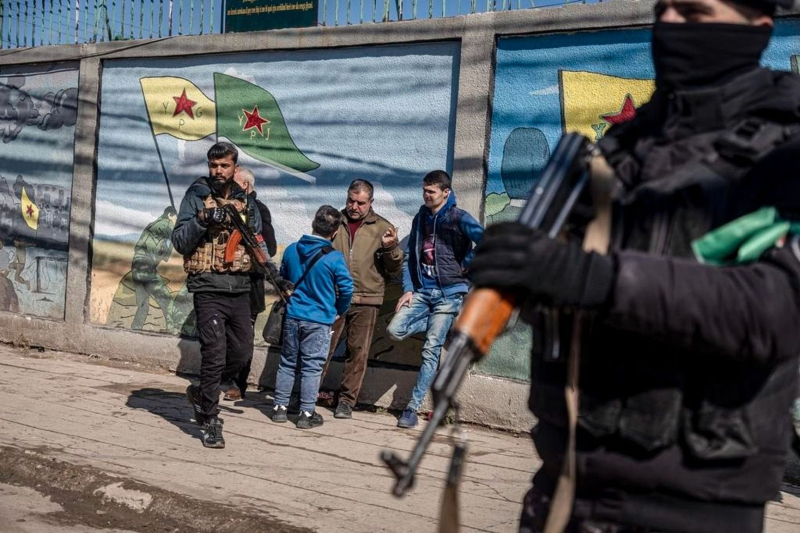
Peaceful coexistence is possible, Yussef believes, but Damascus underestimates how crucial autonomy is to the Kurds: “The authorities in Damascus appear to lack sufficient understanding of the situation in areas controlled by the Autonomous Administration. This makes it difficult for the interim Syrian government to grasp Kurdish demands.”
In March, a Kurdish militia alliance that controls the northeast signed an agreement to incorporate its military and civilian institutions into the Syrian state. President al-Sharaa also met with regional leadership in Afrin. At the same time, the Kurds rejected the constitutional declaration proposed by the new Syrian government, saying that the new president’s administration does not reflect the country’s diversity.
The SDF (Syrian Democratic Forces) is a Kurdish-led international military alliance in Syria that controls the Autonomous Administration of Rojava. It was established in 2015 with support from the U.S.-led international coalition in Syria. The core of the SDF consists of Kurdish self-defense units, the YPG and YPJ.
The PKK is a Kurdish political and military organization that has been fighting for Kurdish national rights in Turkey and the creation of a territorial autonomy within the country. Since 1984, it has waged an armed insurgency against the Turkish authorities. It is designated as a terrorist organization in Turkey.
In the mid-19th century, European economic and political intervention in the Middle East led to a marked rise in wealth and social status among Syrian Christians, whom Paris and London preferred to deal with directly, bypassing Ottoman officials and local Muslims. The resulting resentment among Damascus’s Muslim population — left without stable income due to European dealings — combined with the central government’s inability to quickly restore order on the empire’s periphery, triggered several days of pogroms that left at least 2,500 people dead.
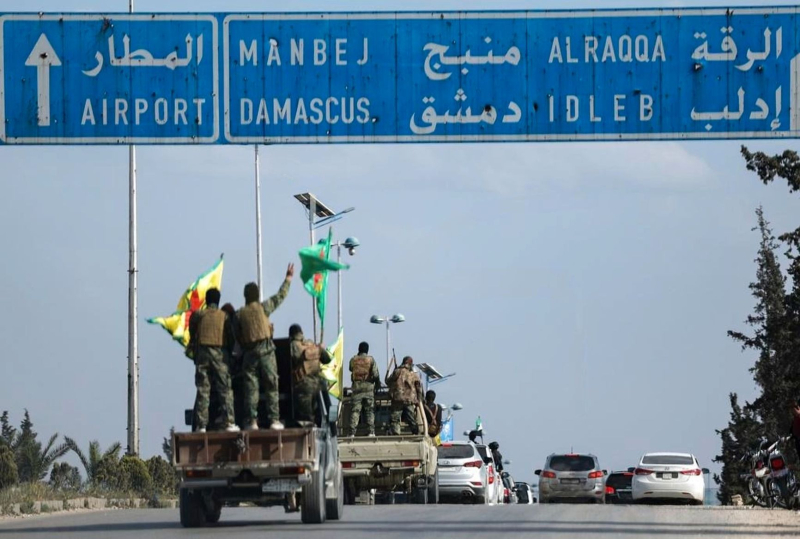
One of the factions that took part in the December offensive on Damascus — alongside Hay’at Tahrir al-Sham (HTS) — was the Turkish-backed Syrian National Army (SNA). For Syrian Kurds, the SNA has long represented one of the greatest threats. In 2019–2020, the SNA joined Turkish military operations against the Kurds in border areas of northern Syria. The group seized Afrin and Serekaniye, carrying out what human rights advocates described as a massacre — widespread executions, arrests, deportations, and property seizures. Reports of Kurdish deportations and land seizures by pro-Turkish fighters continue to this day.
“Hundreds of people remain in prisons controlled by the SNA and overseen by Turkey,” the human rights group Syrians for Truth and Justice reported in May. The organization noted that while political prisoners in other regions had been freed, Kurdish detainees remained behind bars. Human rights activists documented dozens of Kurdish arrests by the SNA in January and February. However, such incidents have decreased since the Kurdish militias reached an agreement with Damascus.
The SDF (Syrian Democratic Forces) is a Kurdish-led international military alliance in Syria that controls the Autonomous Administration of Rojava. It was established in 2015 with support from the U.S.-led international coalition in Syria. The core of the SDF consists of Kurdish self-defense units, the YPG and YPJ.
The PKK is a Kurdish political and military organization that has been fighting for Kurdish national rights in Turkey and the creation of a territorial autonomy within the country. Since 1984, it has waged an armed insurgency against the Turkish authorities. It is designated as a terrorist organization in Turkey.
In the mid-19th century, European economic and political intervention in the Middle East led to a marked rise in wealth and social status among Syrian Christians, whom Paris and London preferred to deal with directly, bypassing Ottoman officials and local Muslims. The resulting resentment among Damascus’s Muslim population — left without stable income due to European dealings — combined with the central government’s inability to quickly restore order on the empire’s periphery, triggered several days of pogroms that left at least 2,500 people dead.
Human rights activists documented dozens of Kurdish arrests by the SNA in January and February.
In May, Abdullah Öcalan — the imprisoned leader of the Turkey-based Kurdistan Workers’ Party (PKK) — announced the group’s self-dissolution and urged members to lay down their arms. Yussef believes this step could help stabilize Syria.
The primary Kurdish military force remains the People’s Protection Units (YPG) and their female counterpart (YPJ), which together form the core of the Syrian Democratic Forces (SDF). Turkey has long fought the SDF, accusing them of having ties to the PKK, which Ankara designates as a terrorist organization.
The SDF (Syrian Democratic Forces) is a Kurdish-led international military alliance in Syria that controls the Autonomous Administration of Rojava. It was established in 2015 with support from the U.S.-led international coalition in Syria. The core of the SDF consists of Kurdish self-defense units, the YPG and YPJ.
The PKK is a Kurdish political and military organization that has been fighting for Kurdish national rights in Turkey and the creation of a territorial autonomy within the country. Since 1984, it has waged an armed insurgency against the Turkish authorities. It is designated as a terrorist organization in Turkey.
In the mid-19th century, European economic and political intervention in the Middle East led to a marked rise in wealth and social status among Syrian Christians, whom Paris and London preferred to deal with directly, bypassing Ottoman officials and local Muslims. The resulting resentment among Damascus’s Muslim population — left without stable income due to European dealings — combined with the central government’s inability to quickly restore order on the empire’s periphery, triggered several days of pogroms that left at least 2,500 people dead.
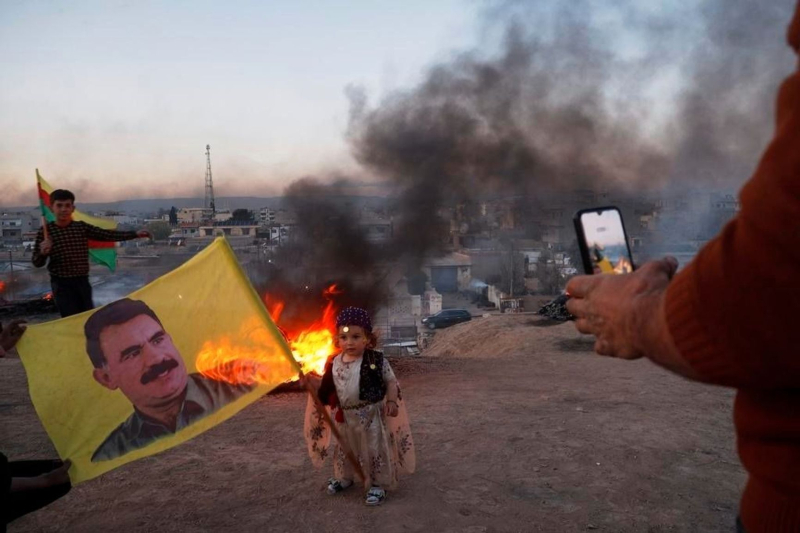
“These are the same justifications Turkey uses to legitimize its military interventions,” Yussef said, noting that Turkey cited the PKK threat as its rationale for seizing Syrian border regions.
The SDF is also in talks with Turkey, according to alliance commander Mazloum Abdi. Yussef said a temporary ceasefire is in effect between the SDF and Turkey, although Ankara has not formally acknowledged it. “The Kurds are feeling some relief, as the threat of a new Turkish invasion — like what happened in Afrin and Serekaniye — has diminished,” he said. “Turkey has also ceased its shelling of Kurdish areas.”
Both the Kurds and Syria’s new authorities now face a shared threat: the Islamic State, which has stepped up its attacks on Kurdish checkpoints and patrols since the collapse of the previous regime. Al-Sharaa will likely need the SDF’s help, given that it was the SDF that played a decisive role in defeating ISIS in their territories back in 2019.
The SDF (Syrian Democratic Forces) is a Kurdish-led international military alliance in Syria that controls the Autonomous Administration of Rojava. It was established in 2015 with support from the U.S.-led international coalition in Syria. The core of the SDF consists of Kurdish self-defense units, the YPG and YPJ.
The PKK is a Kurdish political and military organization that has been fighting for Kurdish national rights in Turkey and the creation of a territorial autonomy within the country. Since 1984, it has waged an armed insurgency against the Turkish authorities. It is designated as a terrorist organization in Turkey.
In the mid-19th century, European economic and political intervention in the Middle East led to a marked rise in wealth and social status among Syrian Christians, whom Paris and London preferred to deal with directly, bypassing Ottoman officials and local Muslims. The resulting resentment among Damascus’s Muslim population — left without stable income due to European dealings — combined with the central government’s inability to quickly restore order on the empire’s periphery, triggered several days of pogroms that left at least 2,500 people dead.
Both the Kurds and Syria’s new authorities now face a shared threat: the Islamic State.
“We lost more than 14,000 people in the fight for freedom and democracy. Our experience can be a model not just for the future of Syria, but for the entire region,” said Ilham Ahmed, chair of the foreign relations department of the Democratic Autonomous Administration of North and East Syria.
Despite being the majority group in the country, Syria’s Sunnis are not a unified bloc. Deep divisions exist within the community, as highlighted by recent events in Idlib province, which is predominantly Sunni and had been under opposition control for over a decade.
On May 23, staff at a wedding hall in Idlib were preparing for a performance by popular Syrian singer Mohammad al-Sheikh, part of a planned “celebration of victory over the Assad regime.” About an hour before sunset, armed men in masks burst into the hall. They fired into the ceiling and, shouting “Allahu akbar,” smashed equipment with the butts of their rifles.
The SDF (Syrian Democratic Forces) is a Kurdish-led international military alliance in Syria that controls the Autonomous Administration of Rojava. It was established in 2015 with support from the U.S.-led international coalition in Syria. The core of the SDF consists of Kurdish self-defense units, the YPG and YPJ.
The PKK is a Kurdish political and military organization that has been fighting for Kurdish national rights in Turkey and the creation of a territorial autonomy within the country. Since 1984, it has waged an armed insurgency against the Turkish authorities. It is designated as a terrorist organization in Turkey.
In the mid-19th century, European economic and political intervention in the Middle East led to a marked rise in wealth and social status among Syrian Christians, whom Paris and London preferred to deal with directly, bypassing Ottoman officials and local Muslims. The resulting resentment among Damascus’s Muslim population — left without stable income due to European dealings — combined with the central government’s inability to quickly restore order on the empire’s periphery, triggered several days of pogroms that left at least 2,500 people dead.
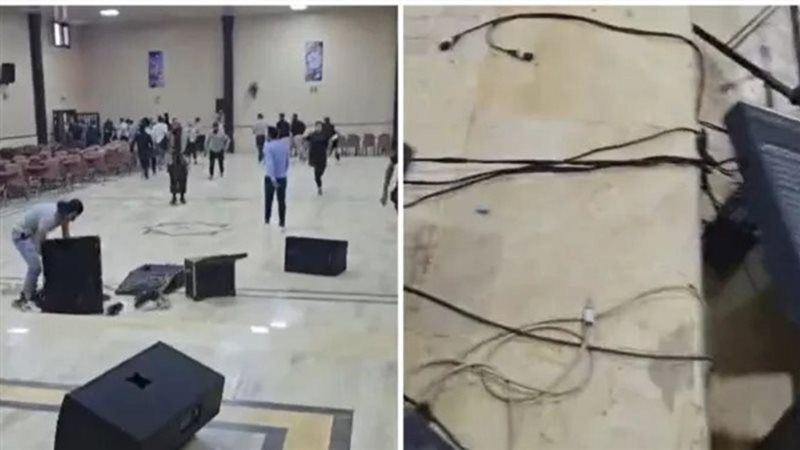
“They trashed the hall, destroyed the buffet, opened fire inside, and when the security service of the new Syrian government arrived, they didn’t even try to arrest the attackers. They practically welcomed them,” said hall manager Khaled Otman in a frustrated social media post. “If you thought this event was illegal, couldn’t you have banned the concert beforehand? Instead, you come on the day of the event, destroy the hall, rob the staff of their livelihood, terrify people, and open fire. Is that normal?”
The damages from the attack were estimated at $10,000. Police eventually made several arrests, but they never disclosed the attackers' identities or any group affiliation. Footage of the raid resembled previous incidents in which radical Islamist groups in Idlib had violently suppressed activities they considered immoral.
The SDF (Syrian Democratic Forces) is a Kurdish-led international military alliance in Syria that controls the Autonomous Administration of Rojava. It was established in 2015 with support from the U.S.-led international coalition in Syria. The core of the SDF consists of Kurdish self-defense units, the YPG and YPJ.
The PKK is a Kurdish political and military organization that has been fighting for Kurdish national rights in Turkey and the creation of a territorial autonomy within the country. Since 1984, it has waged an armed insurgency against the Turkish authorities. It is designated as a terrorist organization in Turkey.
In the mid-19th century, European economic and political intervention in the Middle East led to a marked rise in wealth and social status among Syrian Christians, whom Paris and London preferred to deal with directly, bypassing Ottoman officials and local Muslims. The resulting resentment among Damascus’s Muslim population — left without stable income due to European dealings — combined with the central government’s inability to quickly restore order on the empire’s periphery, triggered several days of pogroms that left at least 2,500 people dead.
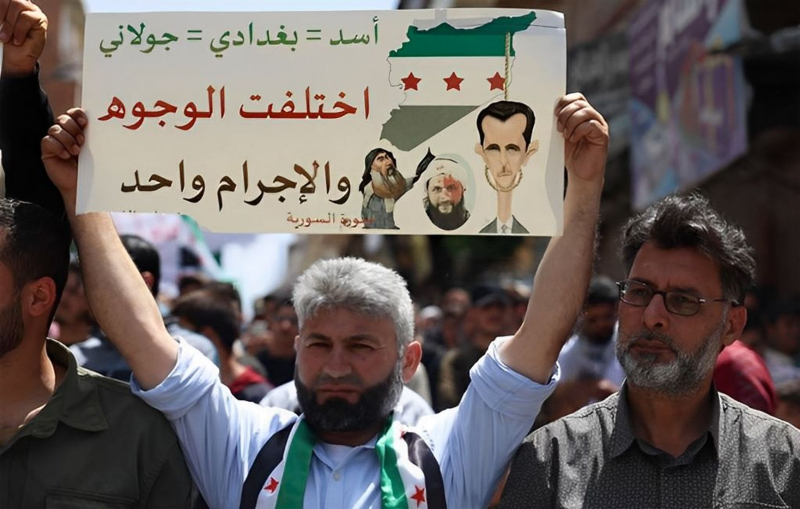
Radical Islamists continue to interfere with government functions, targeting activities they believe violate Islamic codes of conduct. In early June, the Syrian Ministry of Tourism called on women to wear “more modest swimwear” on public beaches. In May, hijabs were distributed during a campaign in one Damascus neighborhood.
Another issue confronting al-Sharaa is the fate of foreigners who fought against the Assad regime. Many of them — hailing from Russia, Central Asia, and various Arab countries — hope to obtain Syrian citizenship. But this is widely opposed by Syrians, especially minorities.
The SDF (Syrian Democratic Forces) is a Kurdish-led international military alliance in Syria that controls the Autonomous Administration of Rojava. It was established in 2015 with support from the U.S.-led international coalition in Syria. The core of the SDF consists of Kurdish self-defense units, the YPG and YPJ.
The PKK is a Kurdish political and military organization that has been fighting for Kurdish national rights in Turkey and the creation of a territorial autonomy within the country. Since 1984, it has waged an armed insurgency against the Turkish authorities. It is designated as a terrorist organization in Turkey.
In the mid-19th century, European economic and political intervention in the Middle East led to a marked rise in wealth and social status among Syrian Christians, whom Paris and London preferred to deal with directly, bypassing Ottoman officials and local Muslims. The resulting resentment among Damascus’s Muslim population — left without stable income due to European dealings — combined with the central government’s inability to quickly restore order on the empire’s periphery, triggered several days of pogroms that left at least 2,500 people dead.
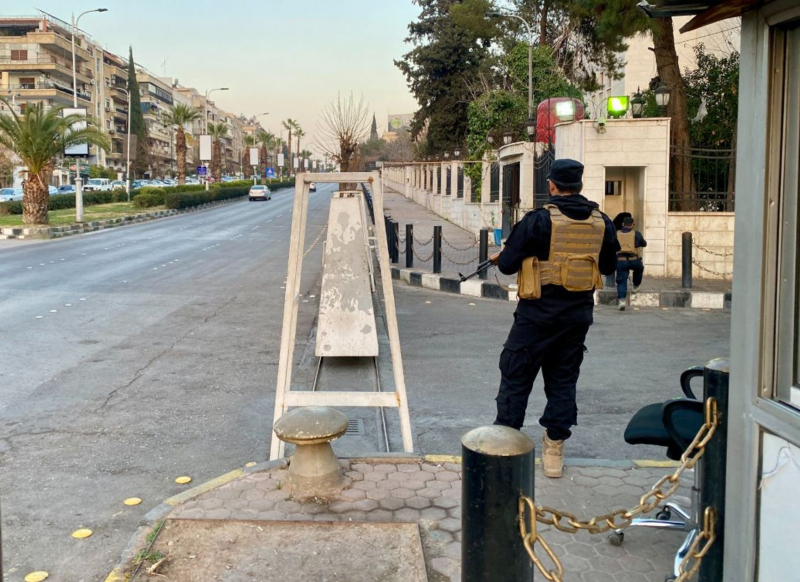
“There was a time when we couldn’t tell who was on the road, a terrorist or a state agent. They looked the same,” said Khaled, a resident of the Druze town of Sahnaya.
“We have soldiers from Asia: Uzbekistan, Tajikistan, Chechnya. Why do we need them? These are the kinds of questions being asked in Syria right now. We don’t even know who these people are.”
As of December 2024, there were an estimated 10,000 foreigners who had fought on the opposition side in Syria. Some now hold senior positions in the new Syrian army, a fact that has alarmed both Syrian citizens and the international community. The United States has made the exclusion of foreign fighters from the government a condition for easing sanctions. The fighters themselves, including many Russian speakers, are angered by Syrians’ skepticism.
“Who cares what those sectarians want?” — a Tajik member of the Faylaq al-Sham group rhetorically asked The Insider, using a derogatory term some radicals use to refer to Druze, Alawites, and Shiites. “We’re not just foreigners. We fought for freedom side by side with Syrians. We’re already full citizens, even more so than many locals, because we delivered this victory. If you serve a country for more than two years, especially during war, you’re a citizen. A better citizen.”
He said Syrians constantly scapegoat foreigners for crimes. “One time, someone burned a Christmas tree in Suqaylabiyah [a small city in Hama province that is home to Greek, Armenian, and Catholic residents] and a woman started screaming that it was Uzbeks and Chechens. But the official report said they were masked, and no one knows who really did it.”
The SDF (Syrian Democratic Forces) is a Kurdish-led international military alliance in Syria that controls the Autonomous Administration of Rojava. It was established in 2015 with support from the U.S.-led international coalition in Syria. The core of the SDF consists of Kurdish self-defense units, the YPG and YPJ.
The PKK is a Kurdish political and military organization that has been fighting for Kurdish national rights in Turkey and the creation of a territorial autonomy within the country. Since 1984, it has waged an armed insurgency against the Turkish authorities. It is designated as a terrorist organization in Turkey.
In the mid-19th century, European economic and political intervention in the Middle East led to a marked rise in wealth and social status among Syrian Christians, whom Paris and London preferred to deal with directly, bypassing Ottoman officials and local Muslims. The resulting resentment among Damascus’s Muslim population — left without stable income due to European dealings — combined with the central government’s inability to quickly restore order on the empire’s periphery, triggered several days of pogroms that left at least 2,500 people dead.
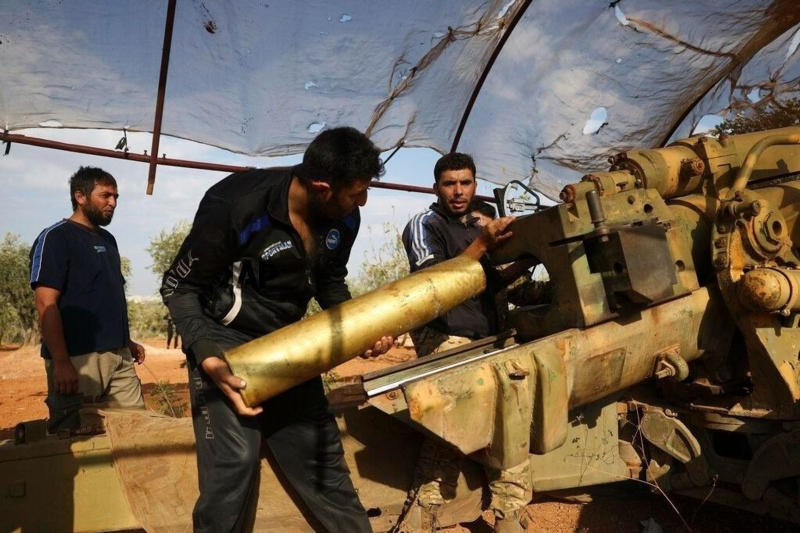
Foreign fighters interviewed by The Insider were adamant that the new government would not dare deport them. “Us, the ones who fought for Syria’s freedom? Over our dead bodies. Let them even try to think about it!”
Ahmad al-Sharaa appears willing to go to great lengths to gain legitimacy in the eyes of the international community, wrote Lina Khatib, an expert on the Middle East at Chatham House. However, many of the factions aligned with him are, in her words, “jihadists and extremists in their thinking.”
Such elements were likely behind the mass killings of Alawites in March, according to analyst Sam Heller:
“In response to the uprising in the coastal provinces, al-Sharaa’s government mobilized security forces, joined by various irregular groups from across the country, potentially tens of thousands of people who were not actually under formal command. They arrived in Latakia claiming to represent the Defense Ministry, but their actions were not under state control.”
The pattern recalls that of the Assad era, when pro-regime militiamen known as shabiha took part in the mass killing of opposition supporters, often with the tacit — or even explicit — support of the official army.
The SDF (Syrian Democratic Forces) is a Kurdish-led international military alliance in Syria that controls the Autonomous Administration of Rojava. It was established in 2015 with support from the U.S.-led international coalition in Syria. The core of the SDF consists of Kurdish self-defense units, the YPG and YPJ.
The PKK is a Kurdish political and military organization that has been fighting for Kurdish national rights in Turkey and the creation of a territorial autonomy within the country. Since 1984, it has waged an armed insurgency against the Turkish authorities. It is designated as a terrorist organization in Turkey.
In the mid-19th century, European economic and political intervention in the Middle East led to a marked rise in wealth and social status among Syrian Christians, whom Paris and London preferred to deal with directly, bypassing Ottoman officials and local Muslims. The resulting resentment among Damascus’s Muslim population — left without stable income due to European dealings — combined with the central government’s inability to quickly restore order on the empire’s periphery, triggered several days of pogroms that left at least 2,500 people dead.
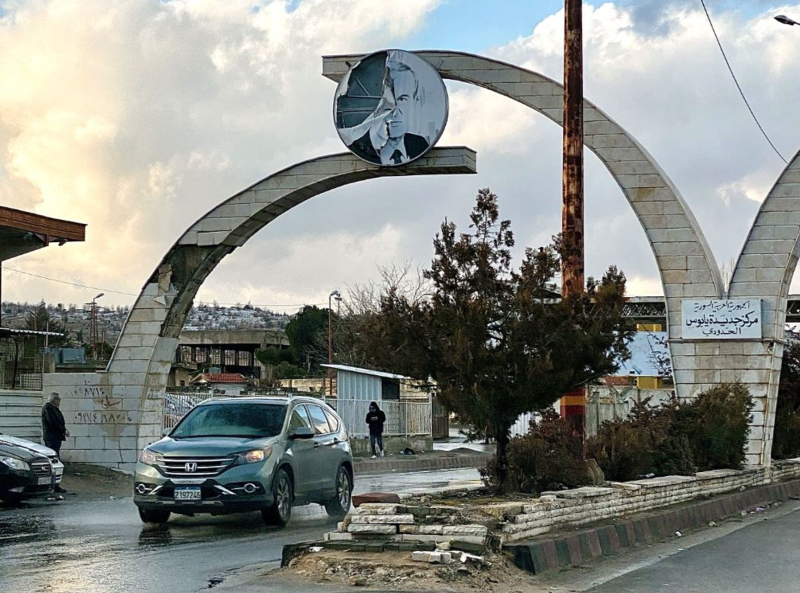
In Khatib’s view, a variety of scenarios are possible in Syria. President al-Sharaa could succeed in bringing the radical factions under control and moderating them while maintaining their loyalty. Or he might manage to suppress them altogether. However, a third possibility is more concerning: a concession to radical demands, resulting in a more overtly Islamist regime.
Khatib believes al-Sharaa has established a system fundamentally based on Sunni supremacy. While minorities are tolerated, they are relegated to a subordinate status. “Al-Sharaa is smart enough to maintain this vision of Syria’s social order without stating it explicitly. This is a political project he seems to be pursuing, not one merely imagined by Syria’s minorities.”
In his public speeches, al-Sharaa emphasizes economic recovery over human rights, focusing on lifting Syria out of poverty. Many Alawites lost government jobs, as well as positions in the military and security services, following the rise of the Islamist group Hay’at Tahrir al-Sham, the anti-Assad movement that al-Sharaa headed during the civil war. As a result, they lost the salaries, pensions, and benefits critical to survival in a devastated economy.
In what appears to be an attempt to address abuses and violence within the armed forces, the Syrian Ministry of Defense introduced a new code of conduct for all military personnel. It bans attacks on civilians, any form of discrimination, insubordination, destruction of public or private property, and the use of inflammatory slogans.
Some factions formerly loyal to al-Sharaa have already declared war against him. On May 23, a manifesto titled “New Syria” was published on social media. It was claimed to be written by Abu Muhammad al-Maqdisi, one of the most influential ideologues of Salafi jihadism and spiritual mentor to Abu Musab al-Zarqawi, the founder of al-Qaeda in Iraq and precursor to ISIS. The document labels al-Sharaa an apostate and traitor to Islam — a charge radicals consider to be punishable by death. Given that many Islamist fighters in Syria still follow al-Maqdisi’s fatwas, the threat is widely seen as credible.
The SDF (Syrian Democratic Forces) is a Kurdish-led international military alliance in Syria that controls the Autonomous Administration of Rojava. It was established in 2015 with support from the U.S.-led international coalition in Syria. The core of the SDF consists of Kurdish self-defense units, the YPG and YPJ.
The PKK is a Kurdish political and military organization that has been fighting for Kurdish national rights in Turkey and the creation of a territorial autonomy within the country. Since 1984, it has waged an armed insurgency against the Turkish authorities. It is designated as a terrorist organization in Turkey.
In the mid-19th century, European economic and political intervention in the Middle East led to a marked rise in wealth and social status among Syrian Christians, whom Paris and London preferred to deal with directly, bypassing Ottoman officials and local Muslims. The resulting resentment among Damascus’s Muslim population — left without stable income due to European dealings — combined with the central government’s inability to quickly restore order on the empire’s periphery, triggered several days of pogroms that left at least 2,500 people dead.
Some factions formerly loyal to al-Sharaa have already declared war against him.
At the same time, without a national compromise, the unresolved conflicts of Assad’s Syria will inevitably resurface in new forms. This is the central challenge facing the country today, and the post-Assad government's capacity to meet it will largely determine what kind of future Syrians of all persuasions ultimately inhabit.
The SDF (Syrian Democratic Forces) is a Kurdish-led international military alliance in Syria that controls the Autonomous Administration of Rojava. It was established in 2015 with support from the U.S.-led international coalition in Syria. The core of the SDF consists of Kurdish self-defense units, the YPG and YPJ.
The PKK is a Kurdish political and military organization that has been fighting for Kurdish national rights in Turkey and the creation of a territorial autonomy within the country. Since 1984, it has waged an armed insurgency against the Turkish authorities. It is designated as a terrorist organization in Turkey.
In the mid-19th century, European economic and political intervention in the Middle East led to a marked rise in wealth and social status among Syrian Christians, whom Paris and London preferred to deal with directly, bypassing Ottoman officials and local Muslims. The resulting resentment among Damascus’s Muslim population — left without stable income due to European dealings — combined with the central government’s inability to quickly restore order on the empire’s periphery, triggered several days of pogroms that left at least 2,500 people dead.


